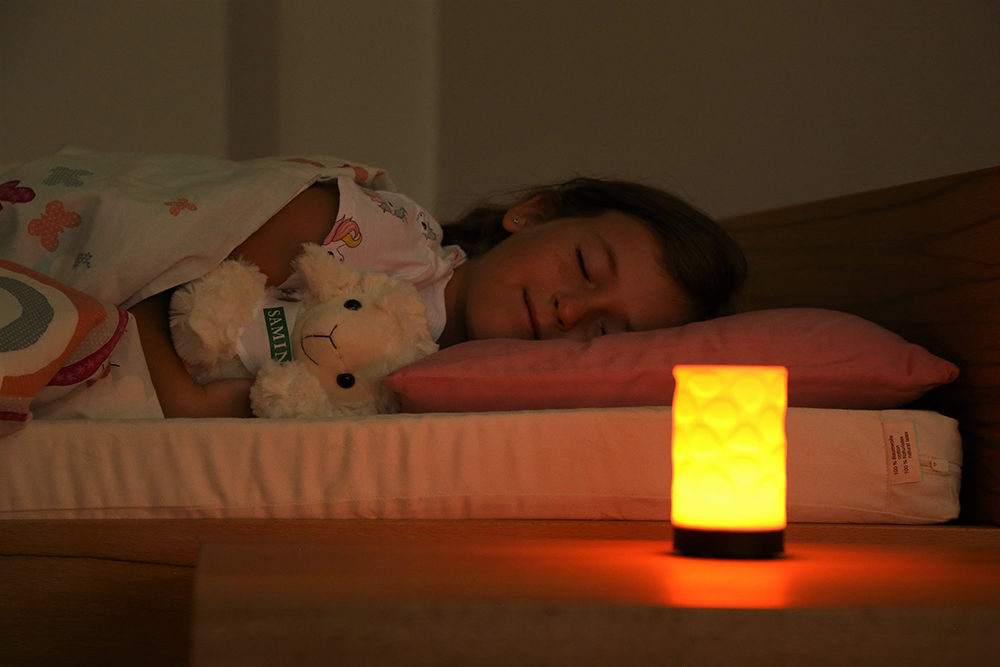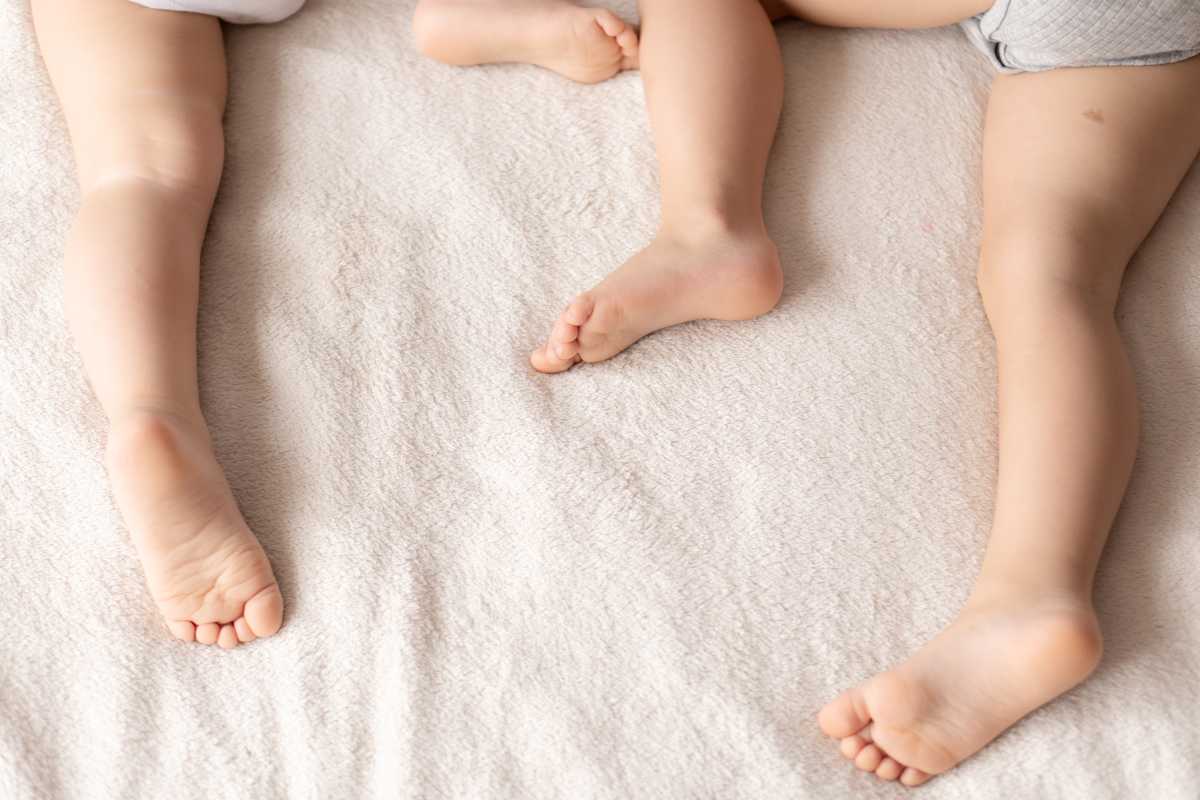
Healthy children's sleep for optimal development
Sleep plays a central role in the optimal development and health of our little ones right from the start. It is particularly important to ensure high-quality sleep for babies and toddlers. If your child finds it difficult to fall asleep or doesn't sleep through the night properly, we have a few tips for you.
Physical and mental development during sleep
Our little ones' brains process and store all the impressions of the day and everything they have learnt during sleep, allowing their little bodies to recover and regenerate. Small cell repairs are carried out and growth hormones are released. The body recharges its batteries in order to grow healthily. On average, a two-year-old child needs around 12 to 13 hours of sleep per night, with the duration of sleep decreasing as the child gets older. A six-year-old child, on the other hand, needs between 10 and 11 hours of sleep to be fit and rested the next day.
Whether problems falling asleep or sleeping through the night, a lack of sleep is particularly noticeable in small children. Affected children are usually tired during the day, worse-tempered, more restless and whinier. The parents' quality of sleep also suffers, especially if the little ones have difficulty falling asleep at night after waking up.
This lack of sleep affects both children and parents. Daytime or chronic tiredness, headaches, nausea, learning and concentration difficulties or even an increased potential for aggression can be symptoms of too little sleep. The following points should therefore be borne in mind.
Light dinner
A hearty or late dinner is heavy on the stomach, makes it difficult to fall asleep and should therefore be avoided at all costs. Sleep experts therefore recommend avoiding fatty foods in the evening, enjoying light evening meals instead and, at best, not eating anything for three hours before going to bed. In addition, drinks containing caffeine such as cola or certain types of tea should not be consumed in the evening.
Avoid overstimulation
Avoid fights and wild romps, especially in the evening. This also applies to exciting or upsetting films, audio books and games. Overstimulation in the form of moving images and loud sounds can make it difficult for children to calm down and fall asleep. It is therefore advisable to minimise the use of smartphones, tablets or televisions by children.
Light sources in the bedroom
The human body needs absolute darkness during sleep in order to be able to fully regenerate. Sleep experts therefore advise making sure that the bedroom can be darkened well. Even diffuse light from outside or a flickering screen is enough to disturb sleep. However, many children are afraid of the dark. The ChronoSleepLight© CANDELA provides a remedy for this - it not only serves as a small night light, it also ensures healthy sleep.

Sleep-promoting room & bed climate
Before going to bed, the bedroom should be thoroughly aired out, as insufficient oxygen inhibits sleep and can promote headaches. The room design can also contribute to a peaceful night's sleep. When choosing colours and materials, look for calm colours and patterns. The bed climate is particularly important for healthy sleep for babies and children. Care should be taken here to use natural materials. In contrast to adults, children have a greater need for warmth and sweat much faster. Organic virgin sheep's wool allows the skin to breathe, provides the necessary warmth, a dry and warm bed climate and ideal temperature equalisation.
You can find an overview of SAMINA children's and baby products here.
Evening ritual and regular bedtimes
Evening rituals provide the necessary peace and quiet. Let the evening wind down and celebrate sleep with your children. Evening rituals such as brushing teeth together, reading aloud or cuddling help children to orientate themselves and signal to the body that it is time to go to bed. Regular bedtime rituals promote sleepiness and ensure that the child is calm. Going to bed at the same time also promotes sleep at night.



